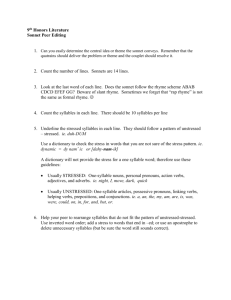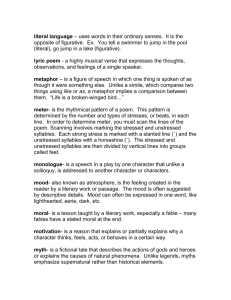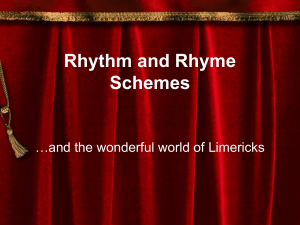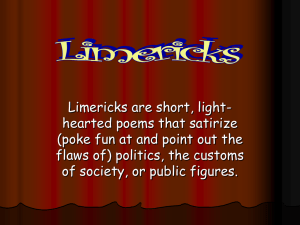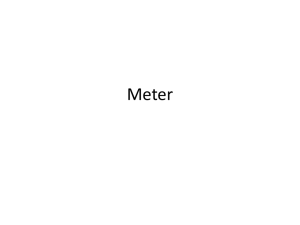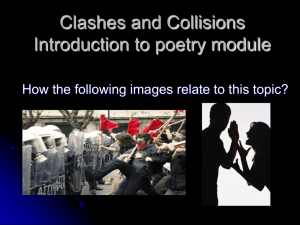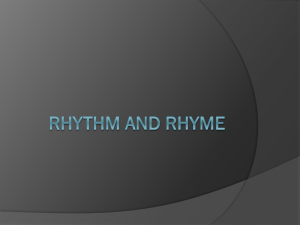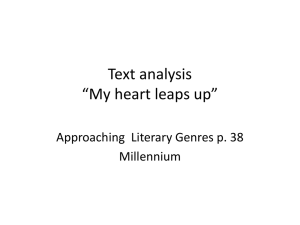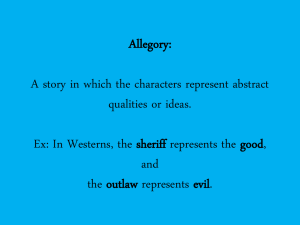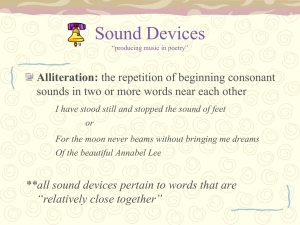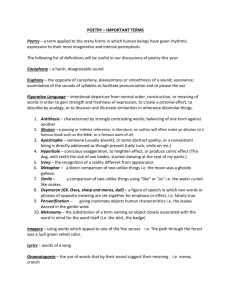poetry terminology
advertisement
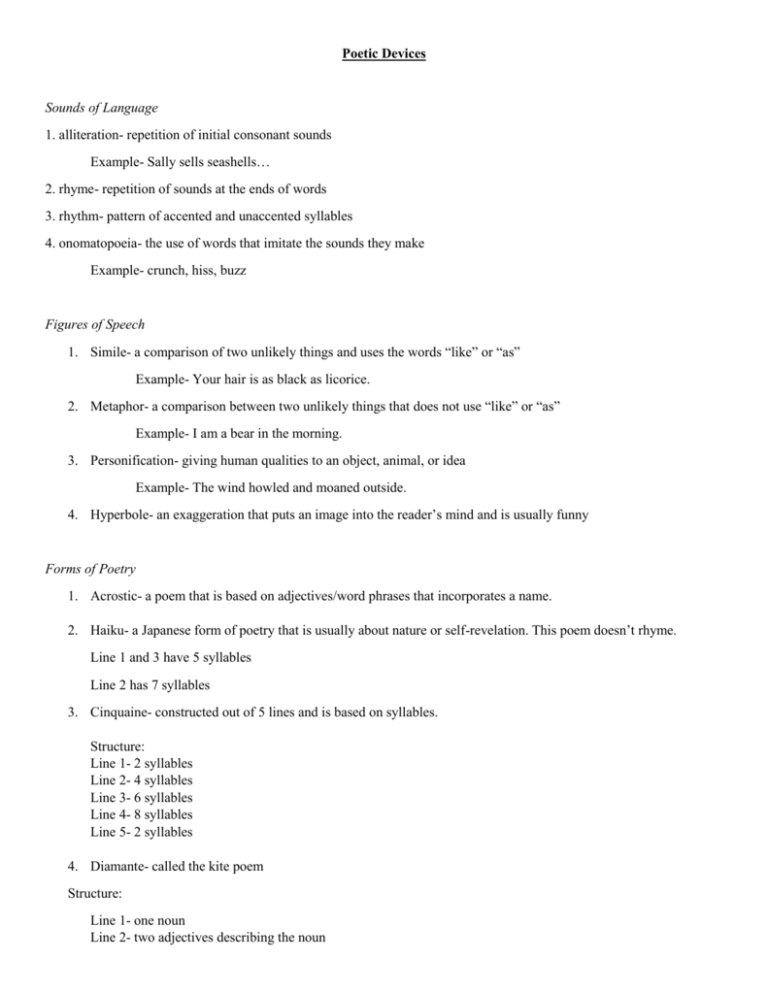
Poetic Devices Sounds of Language 1. alliteration- repetition of initial consonant sounds Example- Sally sells seashells… 2. rhyme- repetition of sounds at the ends of words 3. rhythm- pattern of accented and unaccented syllables 4. onomatopoeia- the use of words that imitate the sounds they make Example- crunch, hiss, buzz Figures of Speech 1. Simile- a comparison of two unlikely things and uses the words “like” or “as” Example- Your hair is as black as licorice. 2. Metaphor- a comparison between two unlikely things that does not use “like” or “as” Example- I am a bear in the morning. 3. Personification- giving human qualities to an object, animal, or idea Example- The wind howled and moaned outside. 4. Hyperbole- an exaggeration that puts an image into the reader’s mind and is usually funny Forms of Poetry 1. Acrostic- a poem that is based on adjectives/word phrases that incorporates a name. 2. Haiku- a Japanese form of poetry that is usually about nature or self-revelation. This poem doesn’t rhyme. Line 1 and 3 have 5 syllables Line 2 has 7 syllables 3. Cinquaine- constructed out of 5 lines and is based on syllables. Structure: Line 1- 2 syllables Line 2- 4 syllables Line 3- 6 syllables Line 4- 8 syllables Line 5- 2 syllables 4. Diamante- called the kite poem Structure: Line 1- one noun Line 2- two adjectives describing the noun Line 3- three verbs Line 4- four nouns Line 5- three verbs describing the four nouns Line 6- two adjectives describing the four nouns Line 7- opposite noun of line #1 Rhyme and Rhyme Scheme 1. Scheme- a plan or patterns 2. Rhyme scheme- the pattern of rhyme at the end of line 3. Internal rhyme- rhyme within a single line Rhythm 1. Rhythm- a pattern of stressed and unstressed beats in a poem / stressed ᵕ unstressed 2. Regular rhythm- has the same pattern of stressed and unstressed syllables 3. Irregular rhythm- has no particular rhythm Structure of Poetry 1. Line- may be a phrase or a sentence that can be arranged in an unusual shape 2. Stanza- a group of lines that are used to separate the ideas in a poem Understanding Meaning Denotation- dictionary meaning of a word Connotation- refers to all the ideas and feelings that a reader gets when he or she reads/hears a word Language Figurative language- a way of speaking or writing in which the speaker or writer describes a familiar thing in a new of different way Literal language- the exact meaning of what is being stated
